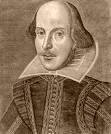Who Was the Real Shakespeare?
By xxkash
@xxkash (66)
India
January 28, 2007 5:00am CST
Many people have been named in the search to find the 'true' author of Shakespeare's plays, including Francis Bacon, the Earl of Essex, Christopher Marlowe, the Earl of Derby, the Earl of Rutland, the Earl of Oxford, and even Queen Elizabeth I herself. The majority of people who believe that Shakespeare's works are not his own credit the Earl of Oxford, although supporters of Bacon are plenty.
After years of exploring all the many theories, I have come to the conclusion that Shakespeare indeed wrote Shakespeare. While there are some pretty good arguments out there supporting Oxford and Bacon, they involve far too much speculation to be considered credible. A common piece of evidence cited by proponents of Bacon is the so-called 'nonsense' word found in Love's Labours Lost - "honorificabilitudinitatibus." They claim that this is an anagram: "hi ludi F.Baconis nati tuiti orbi" or "these plays born of F.Bacon are preserved for the world." However, in reality, the word honorificabilitudinitatibus is the dative singular conjugation of a real medieval Latin word. Dante actually used it more than once, as did other writers of the period. A translation of it would be "the state of being able to achieve honors."Moreover, there is a solid body of evidence to show that a real person named William Shakespeare wrote the poems and plays attributed to him and that this very Shakespeare became an actor in the company that produced the plays. No Elizabethan documents support the claim that Shakespeare's plays and poems were written by someone else, or that the actor Shakespeare was not the author Shakespeare. There is also no evidence to suggest that the name used by this man who crafted the plays, sonnets, and poems was a pseudonym. And, if we examine the lives of the other potential authors of the plays, we see that they were not associated with any of Shakespeare's contemporary actors or productions of the plays.
It is hard for us to believe that a boy from the small town of Stratford could emerge as England's greatest writer. He is a giant among men, and therefore we look to the recordings of history to tell us his thoughts and his every action. Unfortunately, some of our most basic questions about the Bard remain unanswered, and so we feel compelled to construct theories to fit our grandiose conceptions of the man.
In the words of Margaret Drabble: "Over 200 years after Shakespeare died, doubts were raised about the authenticity of his works. The product largely of snobbery...they are best answered by the facts that the monument to William Shakespeare of Stratford-upon-Avon compares him with Socrates and Virgil, and that Jonson's verses in the Folio identify the author of that volume as the 'Sweet Swan of Avon.'"
No responses




